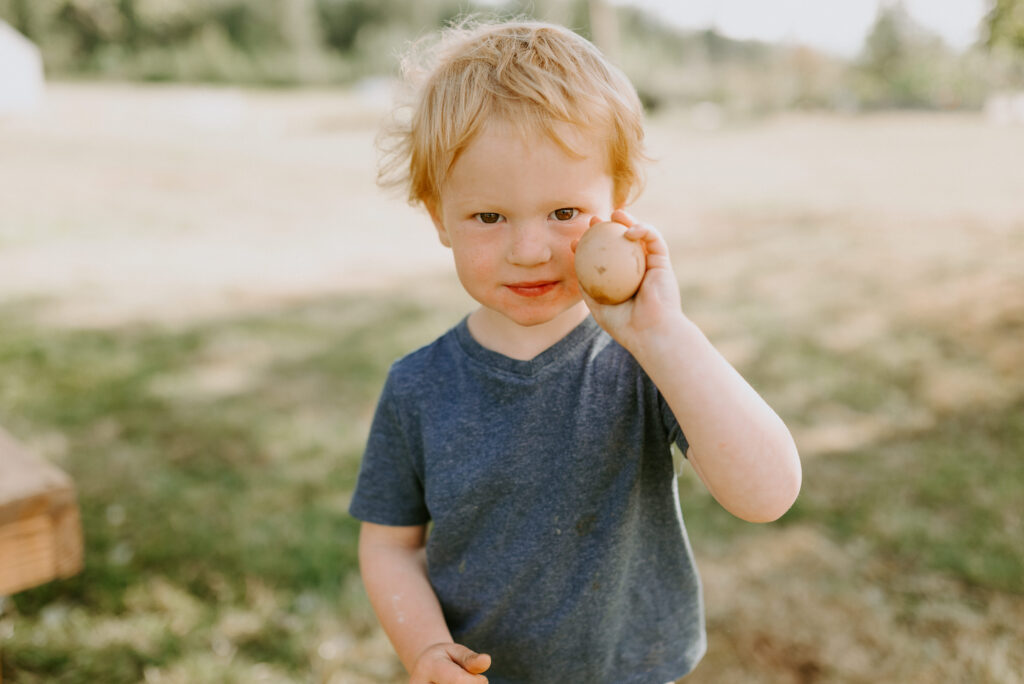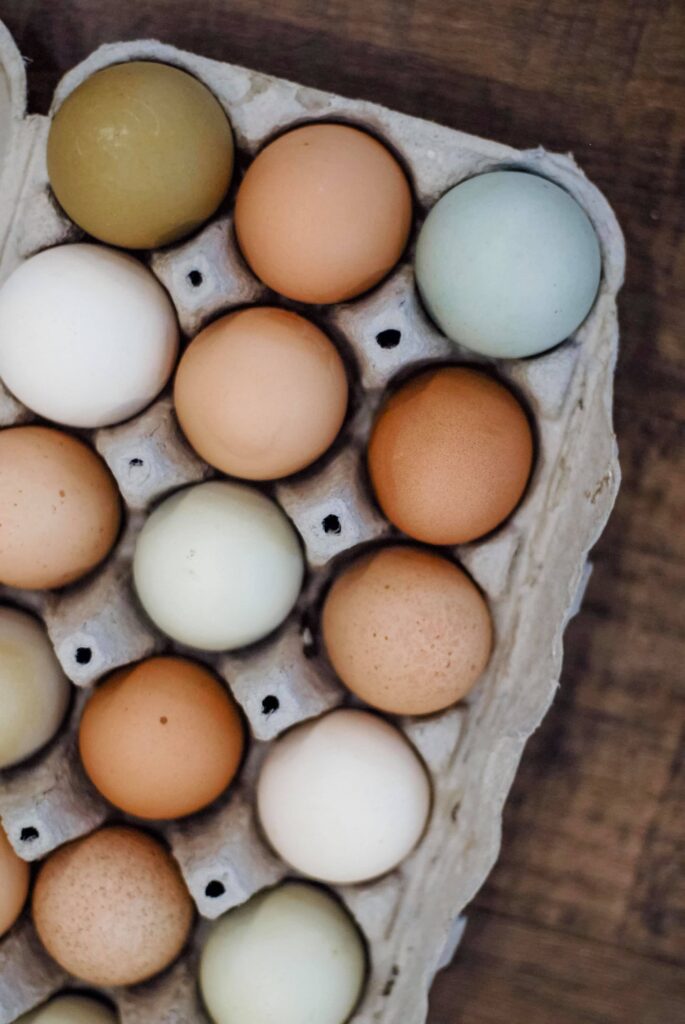
Remember not too long ago when eggs were making headlines multiple days in a row? I couldn’t help but feel grateful for our farm fresh supply but it got me thinking about how much of a luxury eggs can really be, especially during the winter months.
Many people don’t realize it (especially since grocery stores keep them stocked year round) but eggs are actually seasonal in their availability. This is based on a variety of factors, all of which are the norm among flocks of pasture-raised hens.
What Makes Eggs Seasonal
Daylight
One of the main reasons egg production naturally ebbs and flows throughout the year is due to daylight. Laying hens in essence sync up to the cycle of the sun and their egg output follows suit. The spring and summer months, when there’s more daylight, are when egg production peaks. The colder months when there’s less daylight are when egg production slows. The fluctuation in temperature also plays a part here; warmer months mean less energy is needed to maintain body heat and more can be spent on egg laying.
While pasture-raised hens naturally follow the seasons, hens raised on egg farms that supply grocery stores, are typically kept in climate-controlled barns with artificial lights that simulate the cycle and essentially “trick” them into laying year round. We much prefer to let our hens spend their days foraging, scratching, and enjoying the pasture as they please, and we believe the eggs taste better for it.
Molting

As the colder weather gets closer in the fall, chickens go through a process called molt. You may have seen what molting looks like – this is when old feathers are shed so that new ones can grow in, leaving chickens pretty scruffy looking for a few weeks. Egg production slows down considerably during molt as hens replenish their nutrient stores and won’t usually pick back up again until the spring when the weather is better and there’s more daylight.
Age
Hens lay the most eggs during the first two years, and production tapers off each year after that. With a flock as large as ours at nearly 300 hens, the costs to keep lower producing hens would be too high so we offer older hens to local homesteaders for their smaller flocks or we make batches of rich, nutrient dense broth so that nothing goes to waste.
How to Preserve Eggs for Winter
When production is highest in spring and summer we love to preserve as many eggs as we can so that we can stay stocked up in the winter.
Freezing is our favorite method. We butter up muffin tins, crack an egg into each hole, freeze and then thaw as needed for baking and frying all winter long – they taste great and last up to a year this way! Another common method of preserving eggs is called water glassing. Freshly laid and unwashed eggs (in order to create a further barrier on the shell) are submerged in jars with a food-grade or pickling lime and water solution, then sealed with an airtight lid. When done correctly, water glassing will preserve eggs for up to 18 months and they’ll be as fresh as the day they were laid.
PLEASE COMMENT BELOW